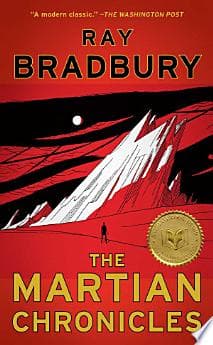- Published on
The Martian Chronicles
- Authors

- Name
- Ray Bradbury
- @search?q=Ray Bradbury

The Martian Chronicles - Ray Bradbury
"The Martian Chronicles" is a seminal work by Ray Bradbury, first published in 1950. This science fiction classic is a collection of loosely connected stories that together narrate the colonization of Mars by humans fleeing the deteriorating conditions on Earth, and their interactions with the native Martian population.
Key Themes
- Exploration and Colonization: The book explores the excitement and dangers of space exploration, as well as the ethical and moral dilemmas of colonizing another planet.
- Cultural Interaction: It delves into the interactions between the human colonizers and the native Martians, highlighting themes of misunderstanding, conflict, and eventual mutual respect.
- Environmental Degradation and Escape: Earth's environmental degradation serves as a backdrop, prompting a reflection on humanity's relationship with its home planet and the search for redemption on Mars.
- The Human Condition: Through its speculative setting, the book examines the essence of the human condition, including our fears, hopes, and the perpetual search for meaning.
Plot Overview
The narrative spans from 1999 to 2026 and is structured around the colonization efforts of Earth's inhabitants and their encounters with the Martians. Initially, the Martians are skeptical and resistant to the human settlers, leading to tragic confrontations. However, as more humans arrive and the Martian population dwindles due to disease and conflict, Mars becomes a reflection of Earth, complete with its cultural and social issues.
Critical Reception
Upon its release, "The Martian Chronicles" was praised for its lyrical writing, imaginative scope, and the poignant questions it raises about humanity's place in the universe. It has since become a cornerstone of science fiction literature, influencing countless works and discussions about space exploration and human nature.
Conclusion
"The Martian Chronicles" is more than just a tale of space exploration; it is a reflective examination of human aspirations, flaws, and the inexorable drive to find our place among the stars. Bradbury's work remains a profound commentary on the dualities of human progress and the unending quest for a better world.
